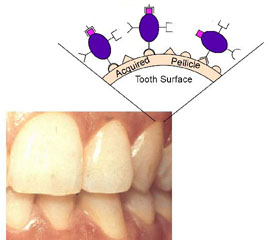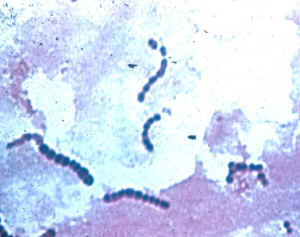|
Maintaining Continuity in a Genome Project
Streptococcus sanguis and Dental Plaque
 Dental plaque arises because bacteria attach to salivary proteins that coat the surface of your teeth, forming a biofilm. Amongst the first bacteria to attach is Streptococcus sanguis. It serves as the scaffold for the attachment of other bacteria and is therefore a prime causative agent of plaque development. The metabolism of the bacterial consortia produce acid that decay teeth.
Dental plaque arises because bacteria attach to salivary proteins that coat the surface of your teeth, forming a biofilm. Amongst the first bacteria to attach is Streptococcus sanguis. It serves as the scaffold for the attachment of other bacteria and is therefore a prime causative agent of plaque development. The metabolism of the bacterial consortia produce acid that decay teeth.
 S. sanguis has an even more insidious side, because this bacterium, along with the other streptococci that live in the mouth, can cause a deadly heart infection called endocarditis. It would be of great interest to learn what properties of S. sanguis are responsible for its ability to participate in plaque formation and what properties are important for causing endocarditis.
S. sanguis has an even more insidious side, because this bacterium, along with the other streptococci that live in the mouth, can cause a deadly heart infection called endocarditis. It would be of great interest to learn what properties of S. sanguis are responsible for its ability to participate in plaque formation and what properties are important for causing endocarditis.
Back to main Scenario page continue
|

